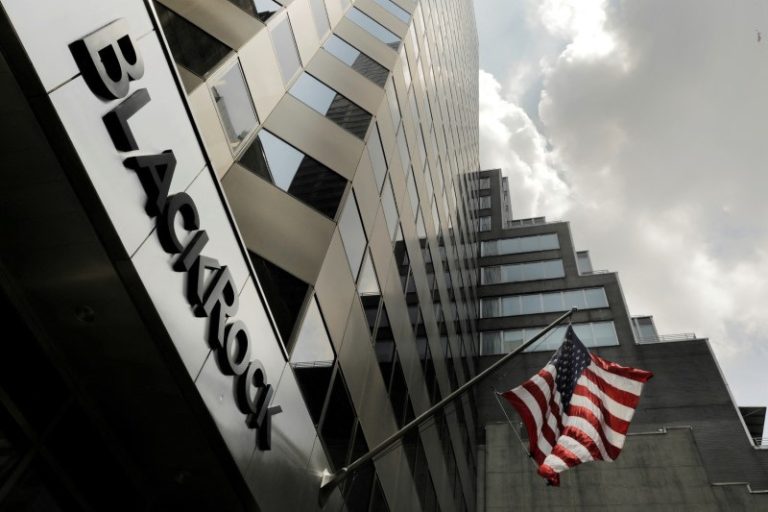Amidst China’s deepening financial crisis, which appears to have hit every sector in the communist country’s economy, the world’s largest and leading financial managers are fleeing the country, many leaving or downgrading operations after losing billions in the country’s largely rigged stock market and retail investors are following suit.
Topping the list of financial giants fleeing the country is the world’s largest asset management firm, BlackRock.
BlackRock began investing in China’s A-share market in 2019, but after just three years the company suffered a 30 percent loss on its investments, equivalent to a staggering $260 billion.
Many speculate that the poor performance prompted the company to terminate its China Flexible Equity Fund, however the company cited a lack of new investor interest as the reason.
Monetary losses aside, the company has also come under the scrutiny of American lawmakers due to its investment strategy in what is arguably America’s primary adversary, raising concerns that the company’s activities may pose a national security threat.
Success
You are now signed up for our newsletter
Success
Check your email to complete sign up
In August, Bloomberg reported that BlackRock, among other money managers, were bracing for more regulatory scrutiny following a congressional probe over their investment in Chinese companies and an executive order aimed at curtailing specific investments there.
On August 9 this year the Biden administration signed an executive order seeking to limit investments in China and, just a few weeks prior to this, the House Select Committee on the Chinese Communist Party said that BlackRock’s investments in Chinese companies was acting against U.S. interests.
The committee demanded that BlackRock hand over documents about the inclusion of Chinese firms in its funds.
READ MORE:
- Congress Questions BlackRock, MSCI for Investing in Chinese Military and State Companies
- Missouri Pulls $500 Million From BlackRock Over Asset Manager ESG
- The Understated, Yet MAssive Power of Asset Management Firms BlackRock and Vanguard
Private equity funds liquidated, retail investors flee
According to the China Securities Investment Funds Association (CSIFA), 2,344 private equity funds have been canceled in China this year as of September 2023, prompting the Chinese media to exclaim that “the market downturn is compounded by the extinction of the shell business.”
A shell business refers to a non-listed company acquiring a listed status by purchasing a certain percentage of equity in an already listed company through the securities market and then injecting its own relevant business and assets by way of reverse takeover for the purpose of indirect listing.
Compounding this, following the introduction of the Anti-Espionage Law by Chinese communist authorities, foreign investors have made a record sell-off of mainland Chinese stocks, resulting in a cut-off of financial foreign investment.
At the same time, foreign investors and multinational corporations are accelerating their withdrawal from Hong Kong’s stock market.
Domestic investors have become wary as well.
The Wall Street Journal published an article on August 3 with a rather pessimistic description of the Chinese stock market, writing, “China’s 200-million-strong army of retail investors have withdrawn from the stock market and started to increasingly put their money into money market funds and insurance products, or simply deposited it in bank accounts, which has had a huge impact on the A-share market,” adding that, “According to official estimates, retail trading accounted for about 60% of total trading in China’s stock market last year.”
Other financial giants are warning that investing in the Chinese stock market is risky to say the least.
Morgan Stanley has continuously downgraded China’s A-share market and has publicly urged investors to stay away from it, considering it to be full of fraud.
Goldman Sachs issued a negative report on China’s state-owned banks, and Moody’s downgraded the prospects for China’s real estate sector to “negative.”
The slew of bad news prompted Reuters to publish an article, “Part of China’s economic miracle was a mirage,” which pointed out that China’s economic growth is a false, superficial boom.
READ MORE:
- Women in China Urged To Spearhead ‘New Trend of Family’ Amid Dwindling Birth Rate
- Xi to Meet Biden During APEC Summit in San Francisco
- As Economy Sputters, Chinese Turn to the Lottery for Hope
CCP intervention
Despite intervention by communist authorities, China’s stock market continues to be extremely volatile.
In a bid to save the malformed Chinese economy and avoid a deeper crisis, the CCP authorities have adopted a series of proactive fiscal policies and a loose monetary policy. It issued an astronomical amount of local government bonds and enterprise stocks and printed an enormous volume of money.
In fact, 20 urgent directives have been issued concerning the Chinese stock market in succession, including halving the stamp duty, simplifying the procedures for securities, tightening up on share reductions, refinancing, and IPOs, and lowering the interest rate on deposits, lowering the personal income tax, lowering the interest rate on mortgages, and encouraging buybacks, among other directives.
In a bid to avoid panic among the public, CCP authorities have enlisted state-run media personalities from various sectors to make positive interpretations of the government’s recent moves.
Wen Bin, chief economist at China Minsheng Bank said, “China is currently the world’s second-largest economy, and our banking system is also the largest globally. The country boasts the second-largest markets in insurance, securities, stocks, bonds, and more,” adding that, “However, the financial strength does not yet match the economic strength. Particularly, the financial scale is large, but its strength is not enough.”













